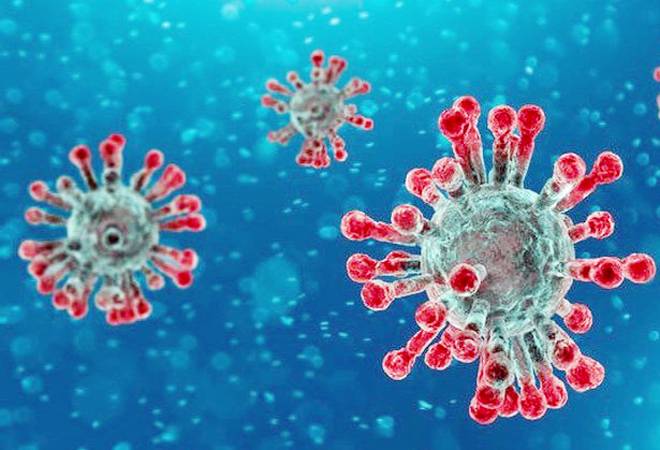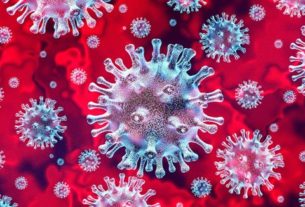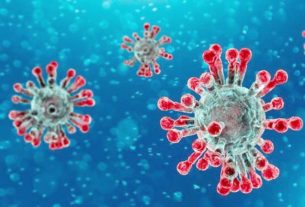From Our Bureau
1ST MAY 2020
The Corona Virus (CPVID-19) pandemic situation remained grim globally, with the confirmed cases across the world soaring to 31,75,207 and the death toll reaching 2,24,172 in the 213 affected countries and territories, according to the latest update from the World Health Organization (WHO).
Globally, European region continued to be the worst-hit, with 14,61,404 confirmed cases and 1,38,200 deaths. American region came next with 12,91,917 confirmed cases and 69,087 deaths. Eastern Mediterranean region reported 1,88,585 confirmed cases and 7,598 deaths.
Western Pacific region’s tally stood at 1,48,838 confirmed cases and 6,127 deaths. South-East Asia region recorded 57,088 confirmed cases and 2,174 deaths and African region witnessed 26,663 confirmed cases and 973 deaths. WHO Risk Assessment at global level remained very high.
Two new Member States (Comoros and Tajikistan) reported cases of COVID-19 in the past 24 hours. The third meeting of the Emergency Committee was convened by the WHO Director-General under the International Health Regulations (2005) (IHR) regarding COVID-19.
The WHO Regional Director for Europe, Dr. Hans Henri P. Kluge mentioned that “we will defeat COVID19 by disseminating knowledge in all transparency, by personalized support in the field and by unfailing solidarity.” In another statement, he emphasized that “we cannot allow the impact of COVID19 to be amplified by neglecting other vital health protection measures.”
The WHO Regional Office for the Americas urged health authorities to take specific steps to protect healthcare workers and communities during essential immunization activities throughout the COVID19 pandemic. WHO virtually convened vaccine manufacturers and national regulatory authorities from its South East Asia Region to discuss COVID-19 vaccines.
At the media briefing, WHO Director-General, Dr Tedros Adhanom Ghebreyesus said that three months ago, he had convened the Emergency Committee under the International Health Regulations, and after receiving their advice, he had declared a global health emergency – WHO’s highest level of alarm.
“I reconvened the Emergency Committee to review the evolution of the pandemic and advise me accordingly. The committee consists of independent, international experts, representing all regions and the full range of relevant expertise. Of course, the pandemic remains a public health emergency of international concern. The committee has made several recommendations for WHO, and for countries. We appreciate the confidence and trust expressed by the committee in WHO to continue to lead and coordinate the global response to the pandemic, in collaboration with countries and partners,” he observed.
“We are committed to fulfilling that role, and to accelerating our efforts. WHO will continue supporting all countries with technical and logistical support, especially those that need it most. We accept the committee’s advice that WHO works to identify the animal source of the virus through international scientific and collaborative missions, in collaboration with the World Organization for Animal Health and the Food and Agriculture Organization of the United Nations,” he added.
“We will continue supporting countries to sustain essential health services, including vaccination, care for women during pregnancy and childbirth, and care for non-communicable diseases, including mental health conditions. As we have done clearly from the beginning, we will continue to call on countries to implement a comprehensive package of measures to find, isolate, test and treat every case, and trace every contact.
“We will continue working with countries and partners to enable essential travel needed for pandemic response, humanitarian relief and cargo operations, and for countries to gradually resume normal passenger travel. The Emergency committee has also made recommendations for countries, and we encourage countries to pay careful attention to that advice.
“And we encourage countries to follow WHO’s advice, which we are constantly reviewing and updating as we learn more about the virus, and as we learn more from countries about best practices for responding to it. In accordance with the International Health Regulations, I will reconvene the Emergency Committee again in 90 days, or sooner if needed.
“Last Friday we joined the European Commission and other partners to launch the ACT Accelerator, to ensure all people enjoy access to all the tools to prevent, detect and treat COVID-19. This coming Monday, May 4, the Commission will host a pledging conference to generate funds for investment in vaccine research.
“I hope you have heard the call from the President of the European Commission, President Ursula von der Leyen. Today we are deepening our relationship with the European Union, by signing a new Memorandum of Understanding with the European Investment Bank, EIB.
“This agreement covers five main areas of work. First, WHO and EIB will collaborate on a new EU Malaria Fund, to address market failures in developing more effective vaccines, drugs and diagnostics for malaria. Although malaria deaths have fallen by more than half since the year 2000, progress has stalled in recent years, and may even reverse if the COVID-19 pandemic disrupts malaria control programmes.
“Last year, WHO’s Strategic Advisory Group on Malaria Eradication and the Lancet Commission on Malaria Eradication both concluded that we will need new tools if we are to achieve the dream of eradicating malaria. Both reports called for increased investment in research and development to deliver new tools. With WHO’s technical expertise and the European Investment Bank’s financial muscle, we are confident of accelerating the development of those new tools.
“Second, our two organizations will work together to foster the development of new innovative antibacterial treatments. Antibiotic resistance is one of the most urgent health challenges of our time. It threatens to unravel a century of medical progress, and leave us defenceless against infections that were previously easily treated.
“Investment in antibiotic development has continued to decline. Some small antibiotic companies went bankrupt in 2019 because of the limited profitability of new antibiotics. Very few new antibiotics are in the pipeline. Most of them offer little benefit over existing treatments, and very few target the most critical resistant bacteria.
“To address this challenge, WHO and the European Investment Bank are working on a fund to invest in the development of new antibiotics for priority pathogens. WHO and EIB now are in discussions with potential investors and other stakeholders on this initiative.
“Third, we will work together to strengthen primary health care and build resilient health systems. The COVID-19 crisis has illustrated that even the most sophisticated health systems have struggled to cope with a pandemic. WHO has grave concerns about the potential impact the virus could have as it starts to accelerate in countries with weaker health systems. With the EIB, we will therefore work urgently to invest in health infrastructure and health workers in 10 countries in Africa and the Middle East, to start with.
“Fourth, EIB and WHO are exploring how the European Investment Bank could support the COVID-19 Supply Chain System, to facilitate the distribution of diagnostics, personal protective equipment and other medical supplies to countries that need them most.
“And fifth, we will work together to study market failures in other areas of public health, to examine how innovative financing could help overcome investment barriers and increase access to lifesaving products and services. The EIB has rich experience in innovative financing. I learned from my friend Werner Hoyer today that the EIB were pioneers of so-called “green bonds” 30 years ago, to generate funds for climate and environmental projects – billions of dollars. “We look forward to seeing how that type of innovative financing could deliver real results for global health, when WHO is advocating health for all. As you know, we have been saying that all roads should lead to universal health coverage, and it’s more important than ever to say exactly the same: all roads should lead to universal health coverage, health for all. WHO is deeply grateful to the European Investment Bank for its support and collaboration,” WHO Director-General added. (eom)


